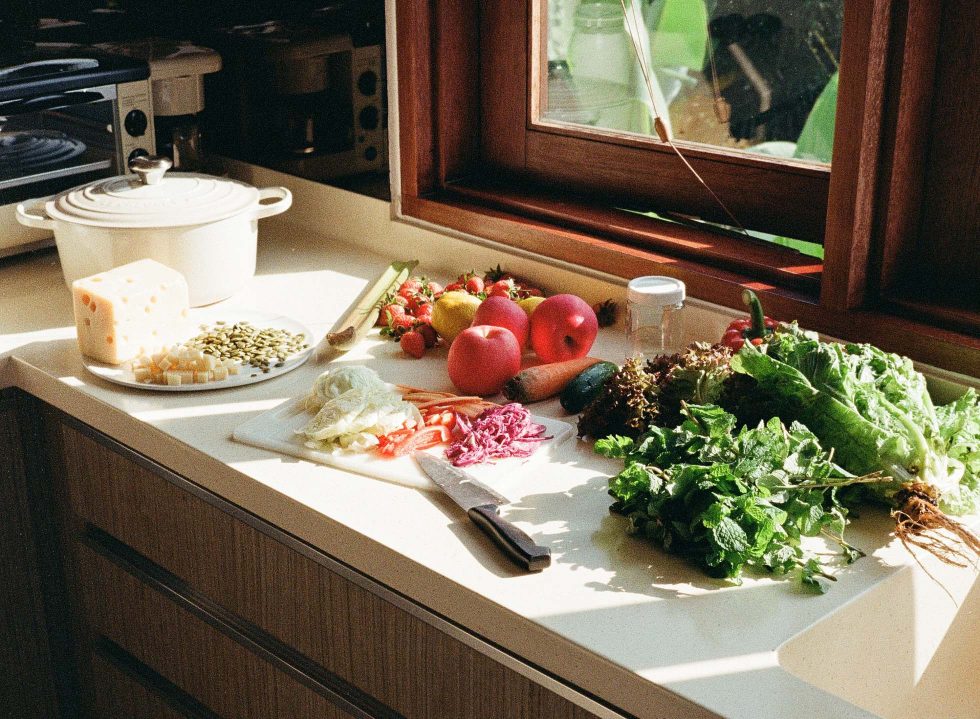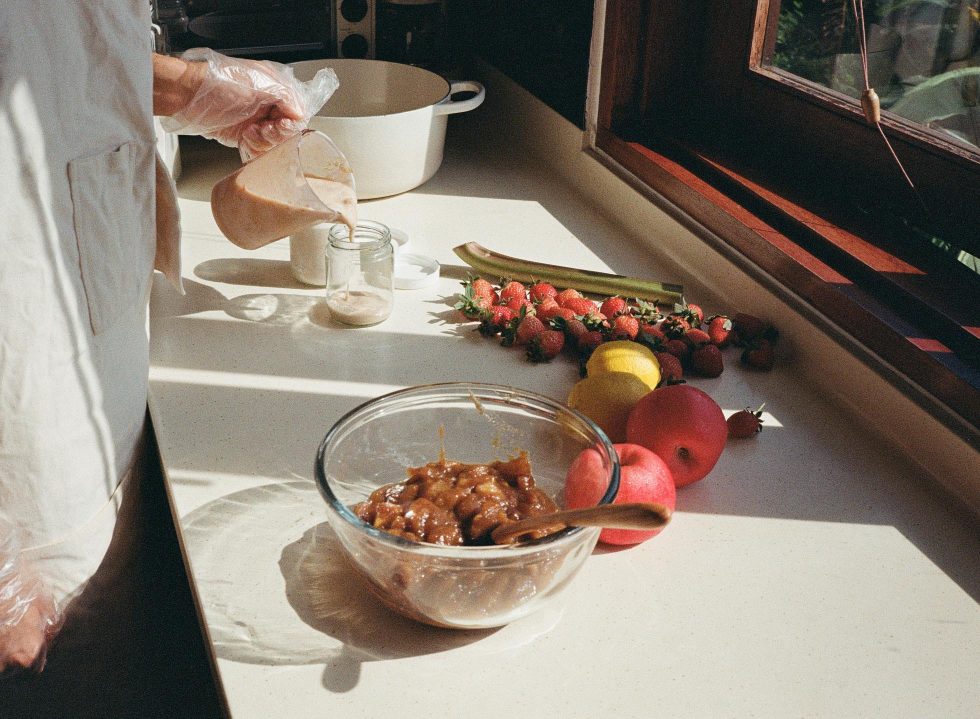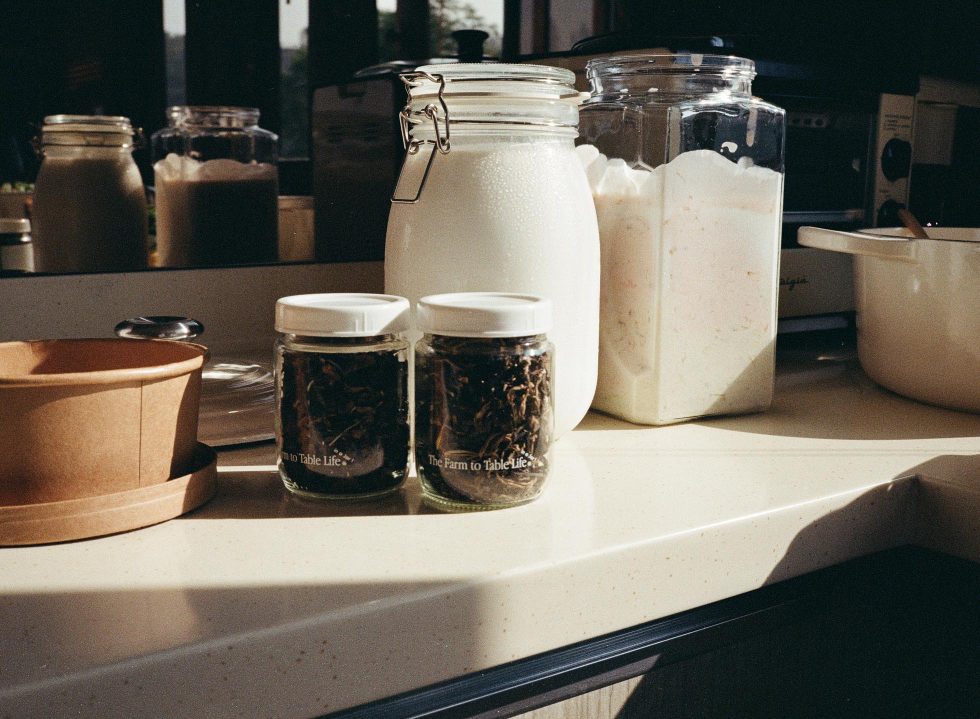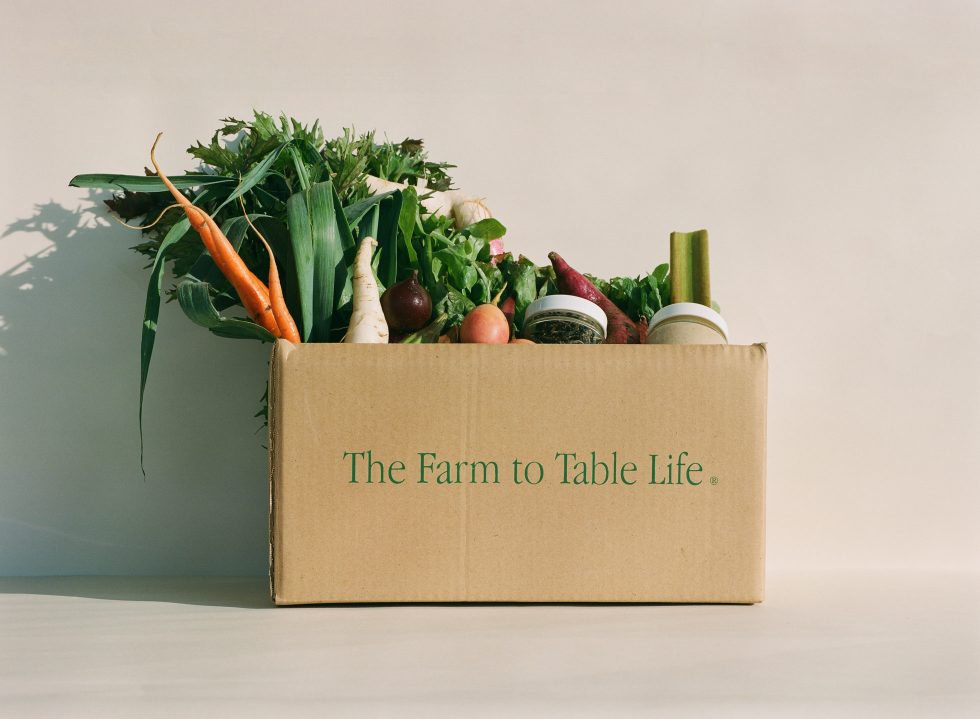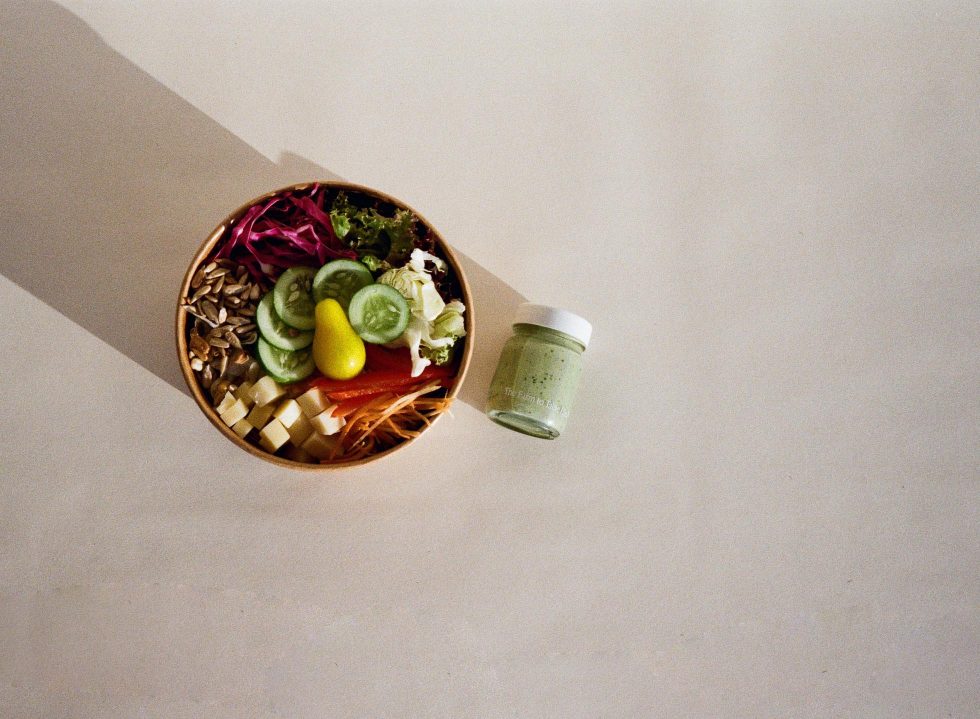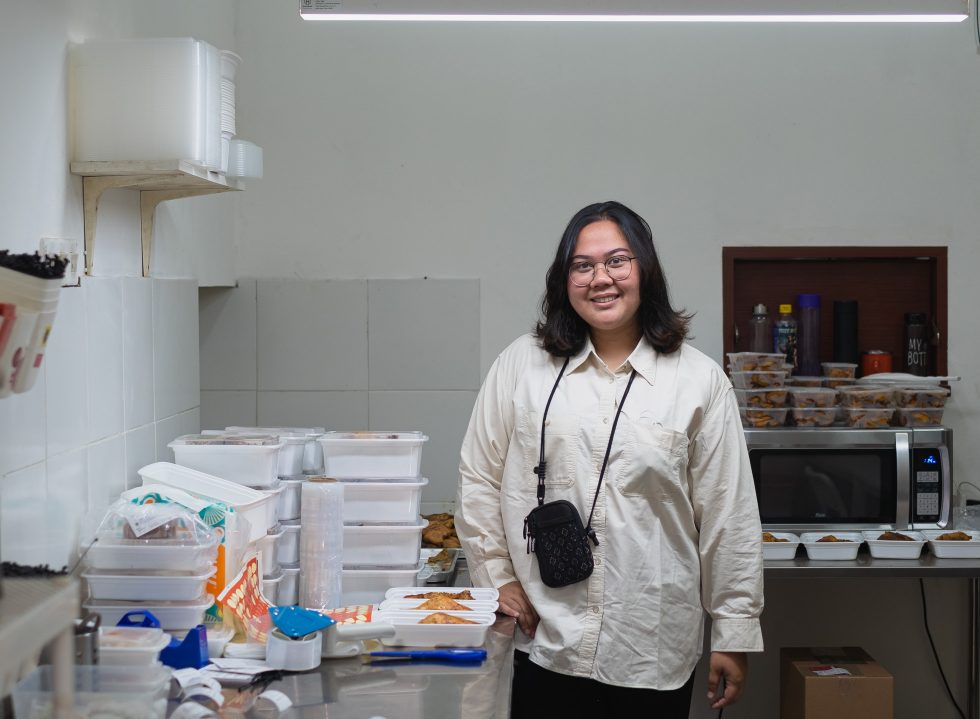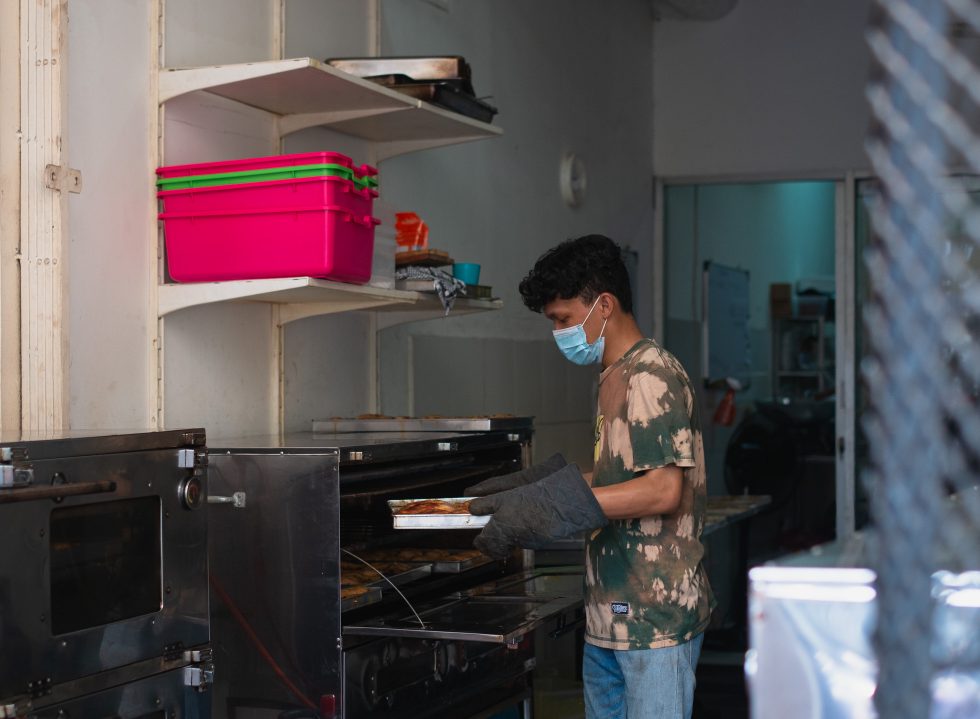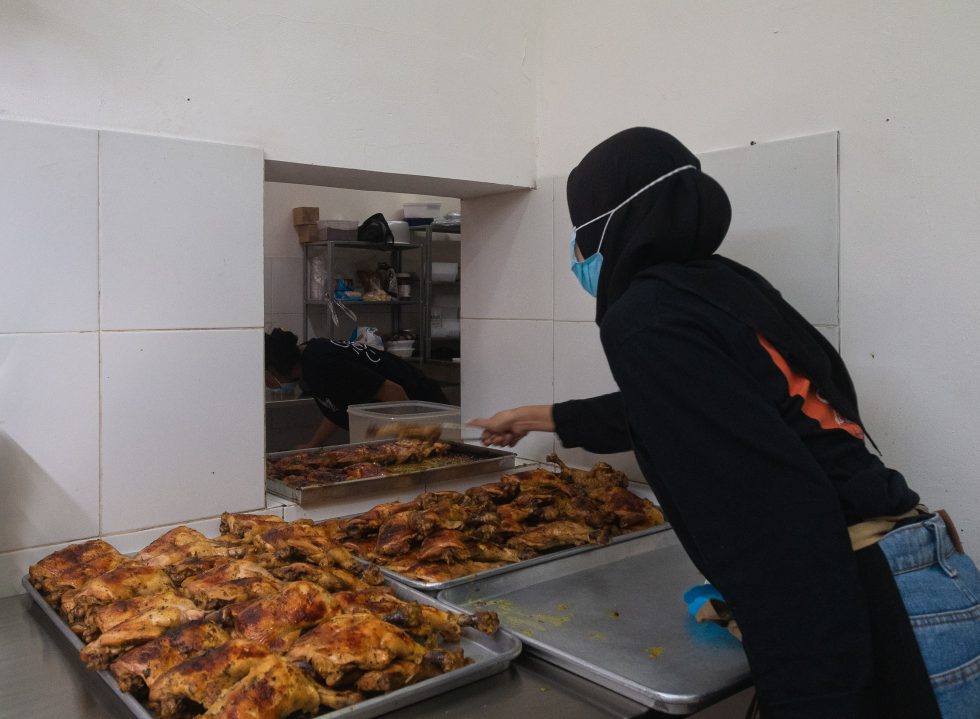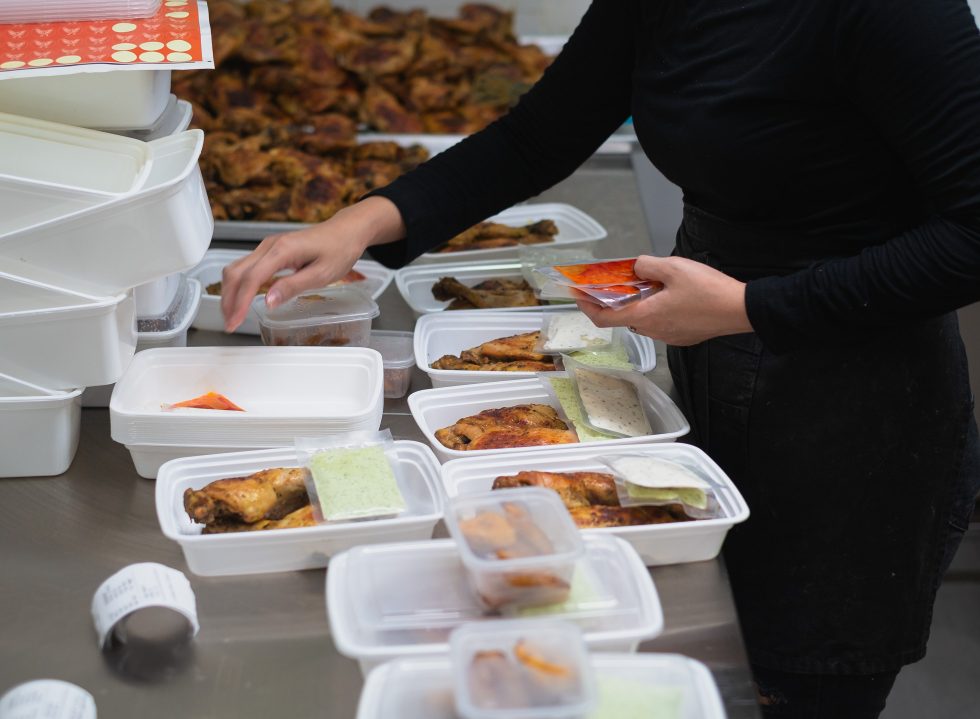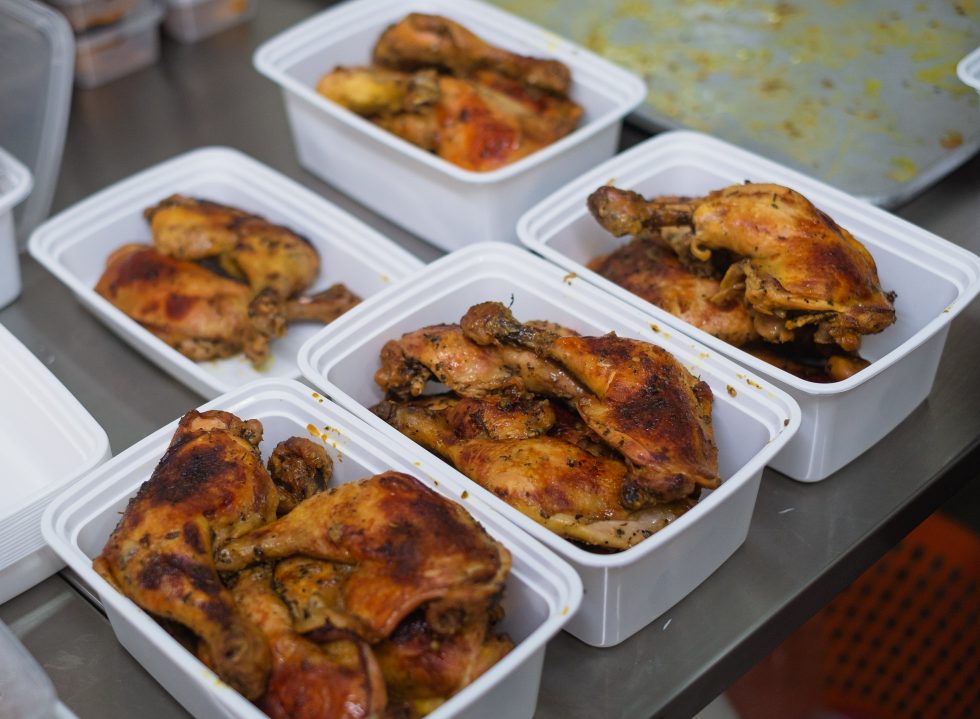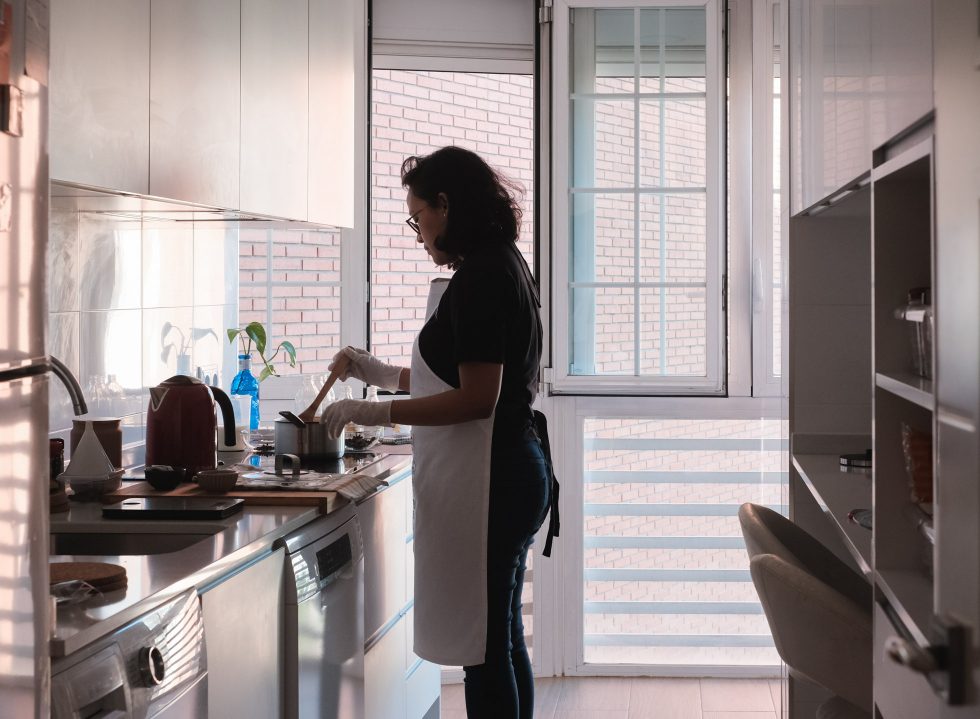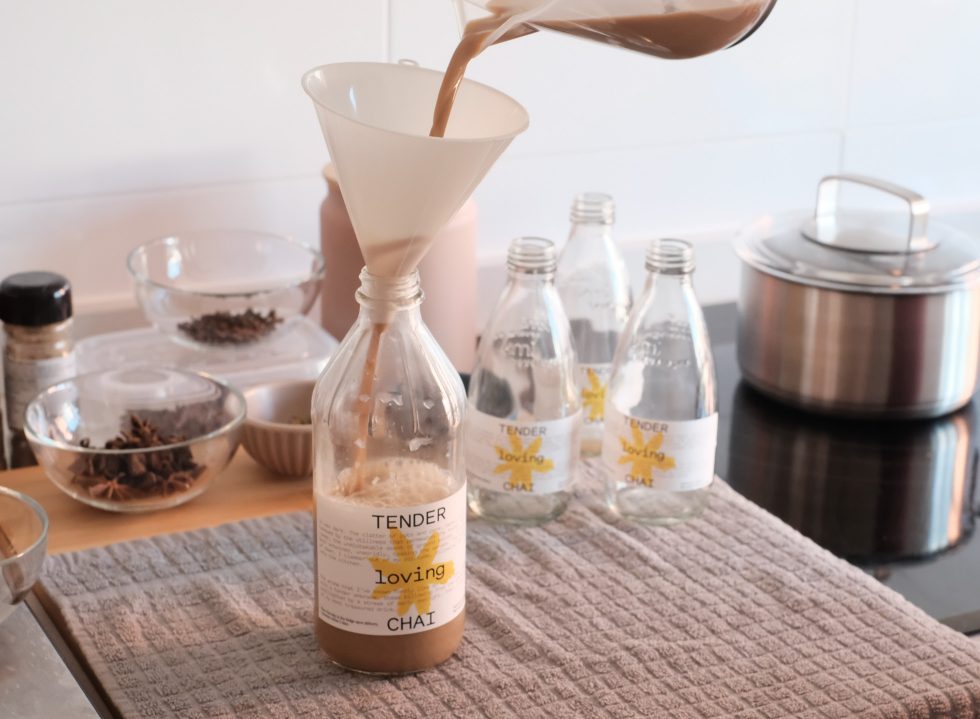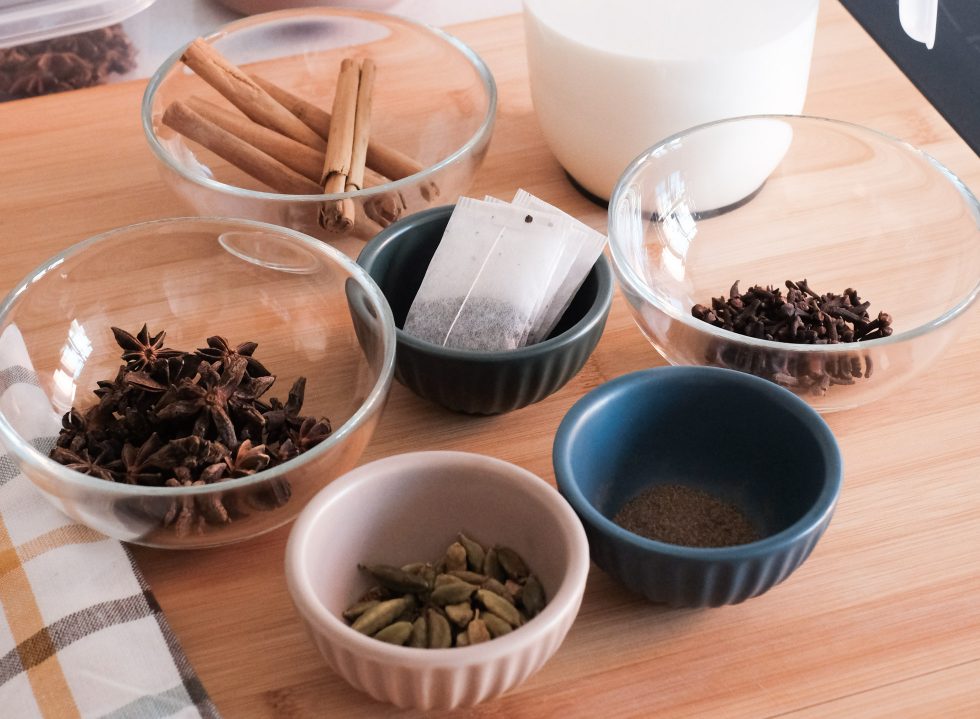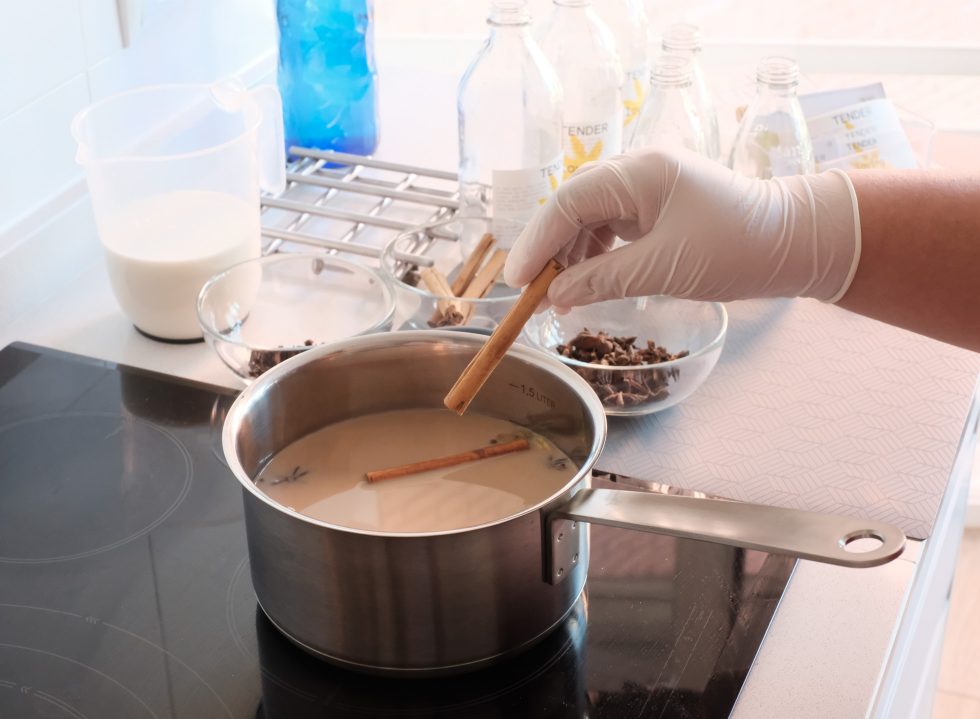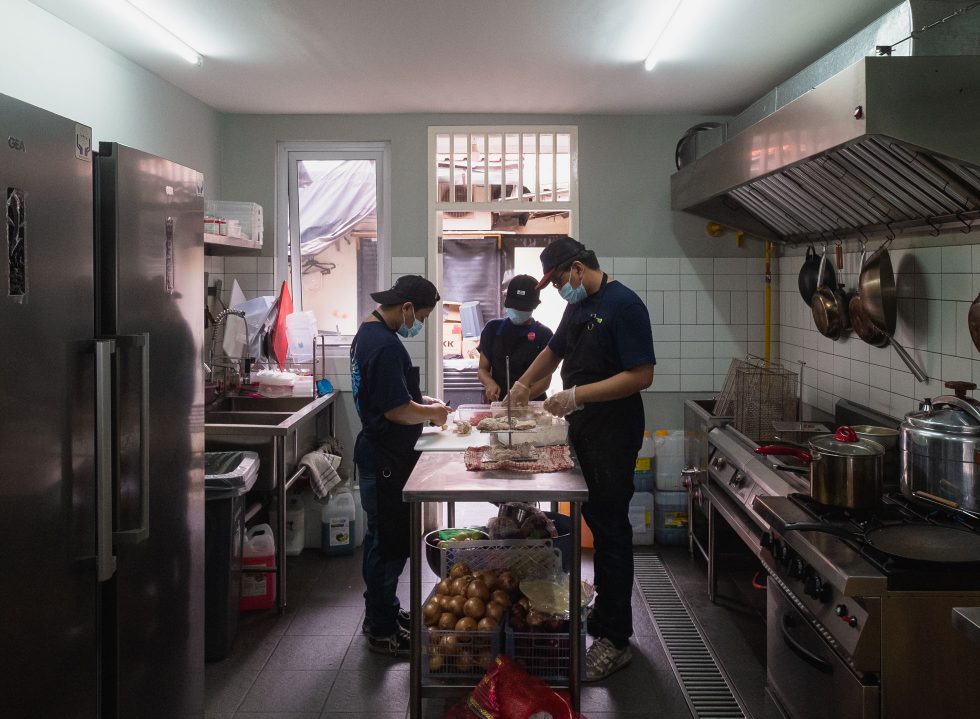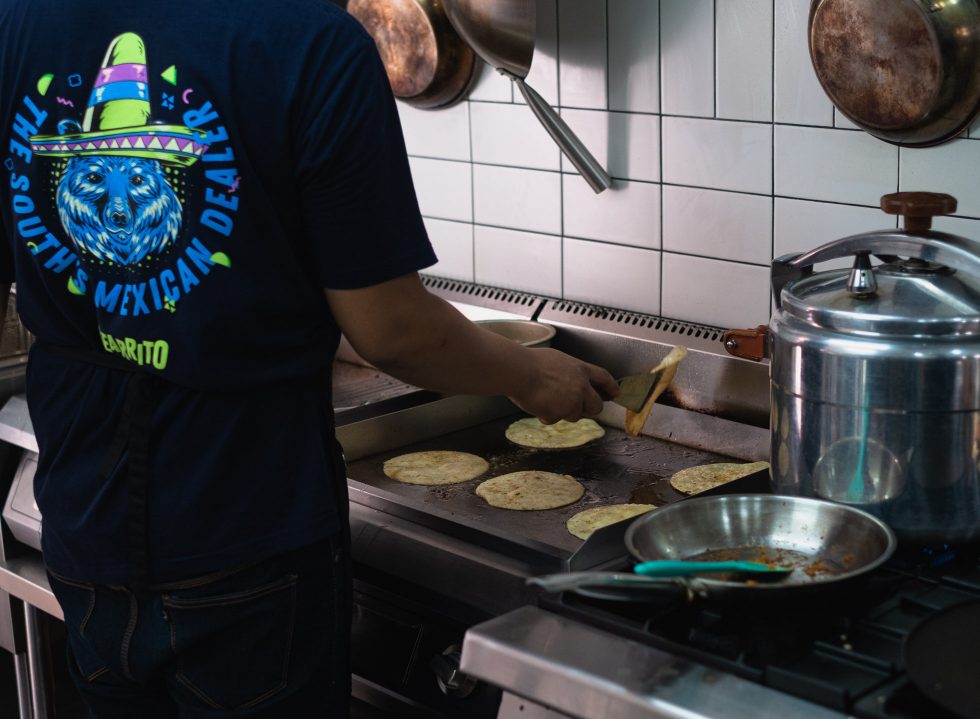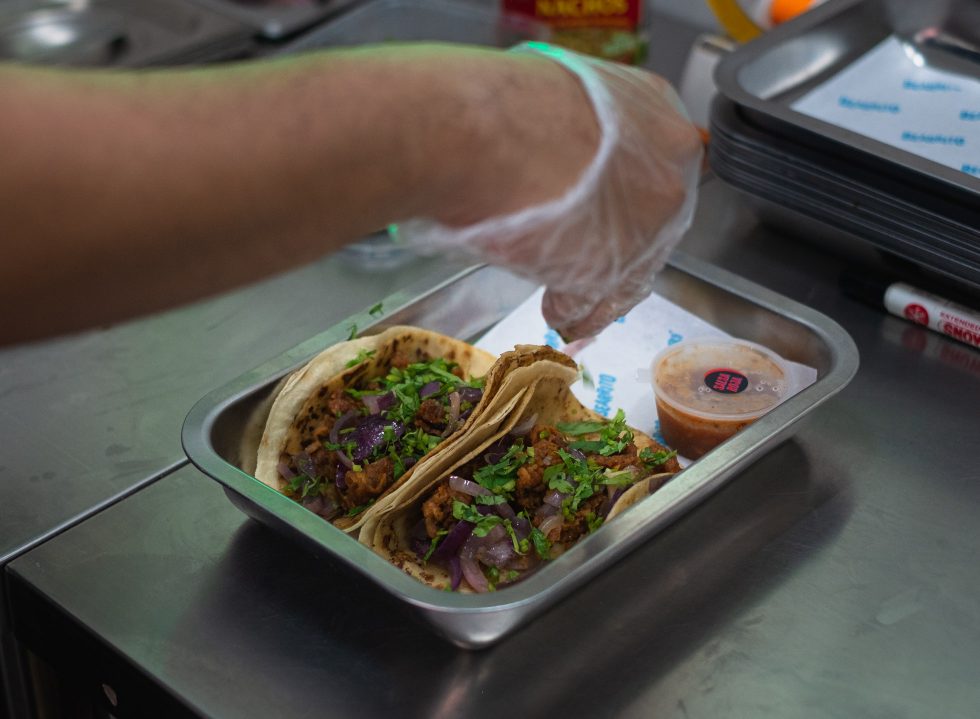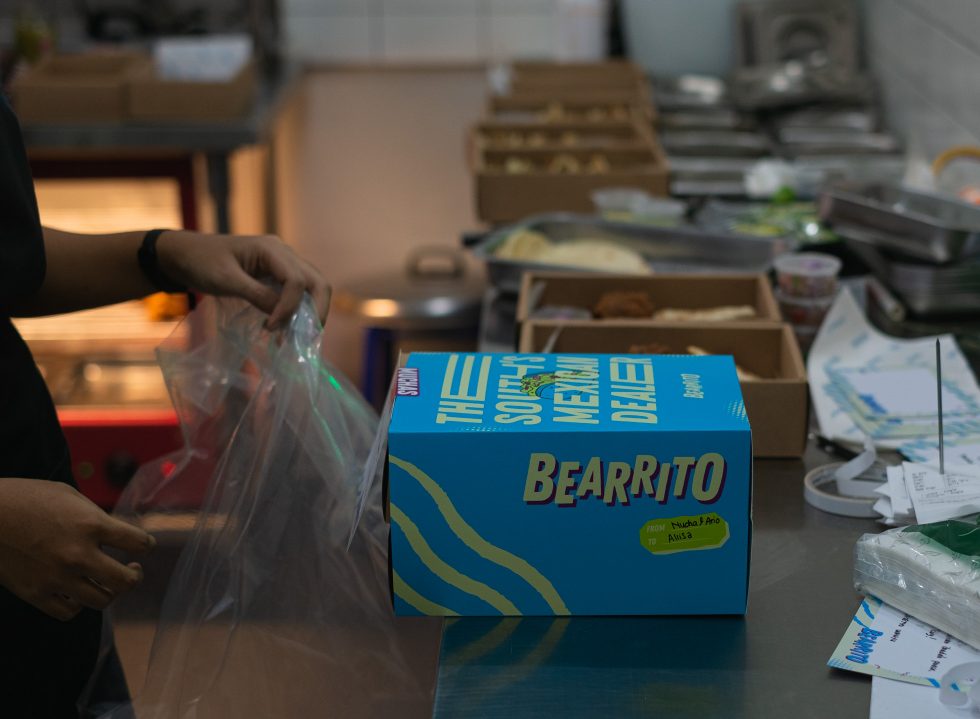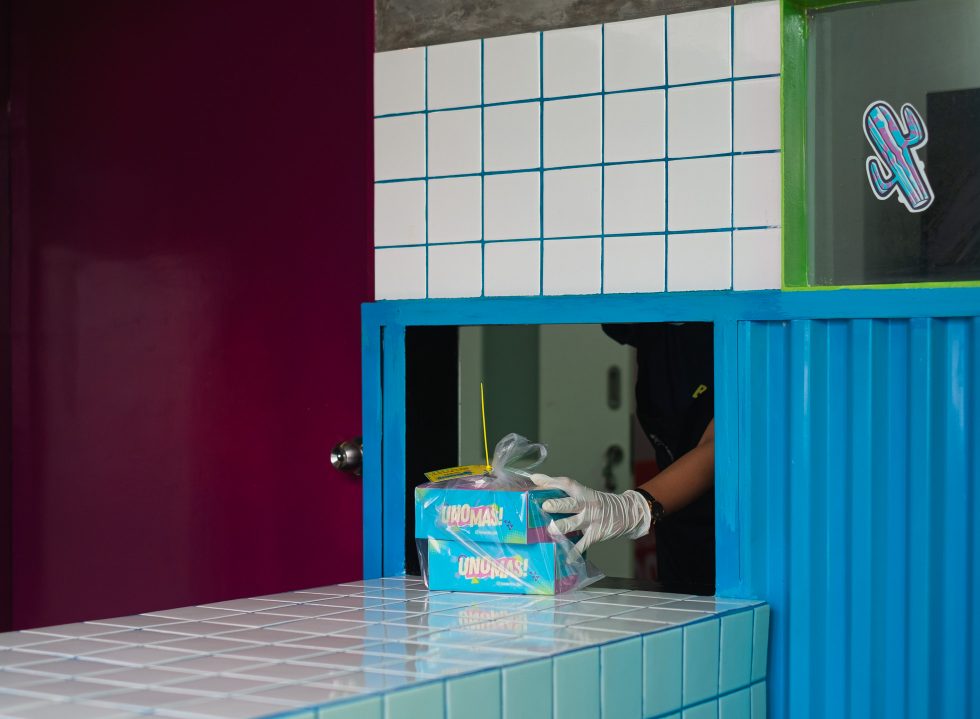In 2020, all Caroline Samosir could think about was how to earn money. When her coffee shop, Saka Kopi, was forced to close in progression with last year’s PSBB in April, her mind started to run amok. After all, Saka Kopi was her and her husband’s main source of livelihood. With people not coming in due to the pandemic, they knew the situation was bound to bleed them dry.
Caroline turned to her cooking skill and started to mess around in her kitchen, trying out different ingredients she had around to make whatever it is that can be sold. She found olive oil, garlic, lemon and Italian herbs; in the end, she made a classic roast chicken with the pairing of sauce verte (green sauce) and surprised herself.
“This tasted so much like the African braised chicken at the Malibu African Food restaurant in Paris,” she thought as she recalled her college days in the French capital. With encouragement from her family, Caroline started to do pre-orders through her Instagram account, marking the impromptu beginning of Paris Di Jakarta.
The chicken dish, paired with cuts of fried plantains or rice, became crowd-pullers, especially among intrigued locals who had a taste of the original chicken at the said restaurant, and caught instant fame through stories and feeds of public figures like Ashanty, Nikita Willy and Dimas Beck, who had shared and raved about the dish.
“The pandemic has taken such a toll in our lives. But this bit of success is thanks to the people who kept sharing and reviewing them on social media,” said Caroline. “Today, the lowest we can reach is 500 pieces of chicken per day. During peak seasons like Ramadan, it can double up to 1000.”
“We saw how takeaway businesses experienced a boom during the pandemic.” – Aditya Maulana Noverdi, co-founder of Bearrito.
Paris di Jakarta is part of this new crop of home businesses that have been coming in waves as a result of last year’s pandemic slump, encouraging people to put on their creative hats and flex the simple resources at their disposal. Last September, Tokopedia reported over 9.4 million sellers on its platform compared to the 7.2 million in January before the pandemic hit – of all sellers, many are selling food and beverages.
These small-scale F&B businesses typically started from their own home, making their presence known via Instagram and taking orders personally from the same platform. With reasons that vary from pure survival to acting on a long-desired dream of starting a business, the pandemic’s stay-at-home measure, along with the power of social media and other digital platforms like Tokopedia and GoFood, have seemingly simplified the barriers for businesses to enter the market.
What came out of this silver lining is a trove of creativity and hustle coming from home kitchens to produce various food and drinks that may or may not find success. Risky? Definitely. But it is also a growing enterprise that spotlights the grit and the drive to make it in difficult situations.
“This was supposed to be a temporary thing. I think one of us said ‘Let’s just do it for three months, then we’ll see what happens.’ We were being realistic.” said Pingkan Palilingan, a writer and one of the folks behind Tender Loving Chai (TLC). She is joined by Celsy Sabilla, a graphic designer and Karina Renata, an entrepreneur. “Chai latte was a new thing for the market and it still is, so we didn’t want to aim very high.”
The idea to make chai latte as a potential business was first thrown by Karina in April last year when they were working together on a project. The close friends, who share a great love for masala chai (Celsy grew up with Karak chai during her time in Doha, while Pingkan and Karina had chai pick-me-ups during their studies in Melbourne), had been cut off by one of their clients halfway through the project when the pandemic just started. “It was quite a significant blow and it propelled us to figure out alternative sources for income.”
So they tried their hands on chai latte, experimenting with different ingredients and methods in their own kitchens and later shared them with their families and friends for feedback until they finally landed on “the one”: a concoction of black tea, brewed with spices such as cinnamon, cardamom pod, clove, black pepper and star anise, then combined with milk.
Their chai is freshly brewed and made upon order, delivered every Monday, Wednesday and Friday, with each covering delivery locations based on where they live; Pingkan was in charge of Tangerang, Celsy for Bintaro and Karina for Jakarta, utilising online couriers such as GoJek and Grab to deliver them.
“But there were some days where we had to deliver the chai ourselves; Karina drove an hour to Bekasi to deliver a bulk order and I drove around Tangerang to send orders,” recounted Pingkan. “Establishing a system that works for your business is a huge task and it keeps changing as the business grows and faces new challenges.”
“I think one of us said ‘Let’s just do it for three months, then we’ll see what happens.’” – Pingkan Palilingan, co-founder of Tender Loving Chai.
Pingkan, 28, soon realised the unpredictable nature of home businesses, whose model is understandably not perfect while customers still expect it to be, from the products down to the service. At the same time, there are also those who are understanding, making it easier for TLC to have creative freedom over their creations.
“Jakarta’s market is very exciting, they’re friendly, they’re very open and willing to try out new things. It’s their support and encouragement that we really appreciate.”
The sentiment on customers’ dynamics is something that Caroline can empathise with, especially since Paris di Jakarta is still operating on pre-orders. With the current routine, Caroline has to marinate the first batch of chicken for 24 hours, before slow-cooking for 2.5 hours the next day. Workday typically starts at six in the morning and ends at five in the afternoon, targeting three batches every day with the help of her growing team of fifteen in a refurbished kitchen that used to be Saka Kopi.
So fair enough that “Paris di Jakarta is only for those who are patient,” joked Caroline. “Whenever we make mistakes – be it with the packaging or the taste itself – some customers would point out that we are not ready [to run a business]. To a certain extent, it’s true because we didn’t start ready. Everything has been so fast-paced and we learned everything by doing until today.”
“Home businesses are definitely much more intimate. We get to experience and learn everything by ourselves.” – Deborah Wangsaputri, co-founder of The Farm to Table Life.
The story behind The Farm to Table Life may seem different from the likes of Paris di Jakarta and TLC, whose creativity was spurred by the desperation of the unpredictable times. Here, the idea sparked even before the pandemic and took off at its own pace.
The Farm to Table Life was started by 24-year-olds Deborah Wangsaputri and Samuel Oeij, where they grow and harvest fresh produce from their own home garden in one of Bandung’s mountainous areas. They sell vegetables and goat yoghurt as a weekly grocery, to-go meal of garden salad, as well as seasonal desserts such as banana bread and rhubarb apple gallate that quickly sold out. After starting around their hometown, they now make deliveries to Jakarta.
The idea itself has been an ongoing conversation since the two friends were still on two different continents. Deborah, who studied at Central Saint Martins in London, fantasised about having her own farm and growing her own food while still doing photography and art direction, and Samuel, who currently works in textile, wanted to pursue a culinary journey.
“This was something that happened organically,” said Deborah. “Our fantasies finally aligned and became a reality during the pandemic because we were finally in the same country. We were able to take a step back and have the time to reconnect with nature.”
By April of last year, the duo started documenting their journey on Instagram; a quick peek at their page and you’ll see how they flex their artistic skills to make photographs of a mere vegetable look attractive. They also get to team up with local farmers, whom they crossed paths with when hiking around the area.
Seasonal produce for the Neighbourhood Grocery, the weekly grocery they sell, are harvested in the morning on the day of delivery; from sweet potato, mustard greens, rhubarb, Romaine lettuce, to herbs such as thyme, basil and mint, with prices that range from IDR 7,000 to IDR 40,000, while a seasonal box costs IDR 75,000. They also pick up fresh goat milk from local farmers to make yoghurt.
“[Home businesses] are definitely much more intimate. We get to experience and learn everything by ourselves, from farming and making the packaging from scratch to milking a goat,” said Deborah. “I see The Farm to Table Life as a way of living on how we want to choose and consume our produce. So, this is definitely for the long run.”
Another encouraging aspect of this unexpected endeavour is how some of these young and tiny businesses have helped create new job opportunities.
Then there’s the by-the-book success story of Bearrito, spawned from the home kitchen of husband-and-wife, Aditya Maulana Noverdi and Alanda Kariza, to now having a humble storefront in Gandaria in the span of eight months. They have been selling Mexican street food for takeaways since the end of June last year.
“We saw how takeaway businesses experienced a boom during the pandemic. We were stuck at home and started to think of what we can do by ourselves,” said Aditya, who was a public relations manager at a tech company before resorting full-time at Bearrito. Aditya, who did cooking stints in restaurants abroad, started with chicken and beef burrito, ground beef quesadillas and pollo fritto (fried chicken); they quickly added in tacos for Taco Tuesday.
Why Mexican street food? Simply because options in the local scene are scant and not as affordable; Bearrito aims to be the sweet spot in between. “After spending some time abroad, we see Mexican food as something that shouldn’t be complicated.”
At first, everything was done through online pre-orders and delivered every weekend, capping 30 to 40 boxes per day. Then, they rented a kitchen space near their house in Bintaro when operation turned daily, shifting from WhatsApp and Instagram’s direct message to Tokopedia and food apps like GoFood and GrabFood for efficiency.
Since Bearrito opened their first branch this April, they have been in the process of transitioning from an online hustle to a full-running eatery, adjusting to the much more intense work rhythm while also hiring cooks and servers who had been laid off due to the pandemic; the latter is another loud truth that both Aditya and Alanda took into consideration when they started the business.
“I don’t think Bearrito would be this big without the support of our friends and family, who became our first customers and kept ordering, so we had the capital to grow the business even further,” recounted Alanda, who handles branding and marketing. “But I think in every crisis, there will always be a group of people who thrive and find opportunities for others who are less fortunate, and I hope that we’ve been able to do something like that too with Bearrito.”
“Everything has been so fast-paced and we learned everything by doing until today.” – Caroline Samosir, founder of Paris di Jakarta.
Even with the ebbs and flows of running a business today, there’s a real sense of start-from-scratch hustle in how these home businesses are actualized, under conditions that are supposed to backfire but instead thrived with tenacity. Another encouraging aspect of this unexpected endeavour is how some of these young and tiny businesses, like the growing team of Paris di Jakarta and Bearrito, have helped create new job opportunities for those laid off in this Covid economy, ultimately helping the business grow together.
Today, these owners are further developing their platforms to see where they can take them. Paris di Jakarta hopes to open a dine-in space somewhere in South Jakarta, even when piling orders that have reached major cities in Java are still keeping their hands full. Tender Loving Chai and The Farm to Table Life want to diversify their lineup of products. Bearrito contemplates whether they should keep the business small or branch out further.
On how people respond to difficult times, Pingkan of Tender Loving Chai observes that “people can be really creative. Nobody had ever expected that home businesses would be this robust during the pandemic, but it’s amazing how people thrive.”
Likewise for Alanda of Bearrito, who believes that the same grit can be seen in previous crises, noting the 2008 financial downturn as a comparison. “There was also a lot of business growth after [that crisis] and I think it would be quite similar this time as well. I think this says that some people are resilient. We strive to look for opportunities and new doors when other doors are closed in the face of adversity.”
Paris di Jakarta
Started by Caroline Samosir in April 2020, Paris di Jakarta makes African chicken to go with rice, fried plantains or as their own. Offerings here also range from baked pasta in a jar to desserts like croissant milk bath. You can find more about them here.
Tender Loving Chai
At the onset of the pandemic, three friends Pingkan Palilingan, Celsy Sabilla and Karina Renata got together to offer homemade chai latte, which you can order here, or buy in-store at The Roots and Brookland Coffee. Other than its brewed goods, TLC also recently came out with an exciting menu, Masala Chai Latte Ice Cream.
The Farm to Table Life
The Bandung-based platform, founded by duo Deborah Wangsaputri and Samuel Oeij, offers weekly grocery of fresh produce grown and harvested from their own garden. The duo also makes goat yoghurt, to-go meals of garden salad and seasonal desserts, so keep your eyes peeled for their next creations. Learn more about them here.
Bearrito
Started by husband-and-wife Aditya Maulana Noverdi and Alanda Kariza, Bearrito is known for its Mexican street food lineup, stretching from burritos and tacos to quesadillas, that started from a takeaway business to a dine-in service. You can find out more about Bearrito here or visit their eatery in Gandaria.

